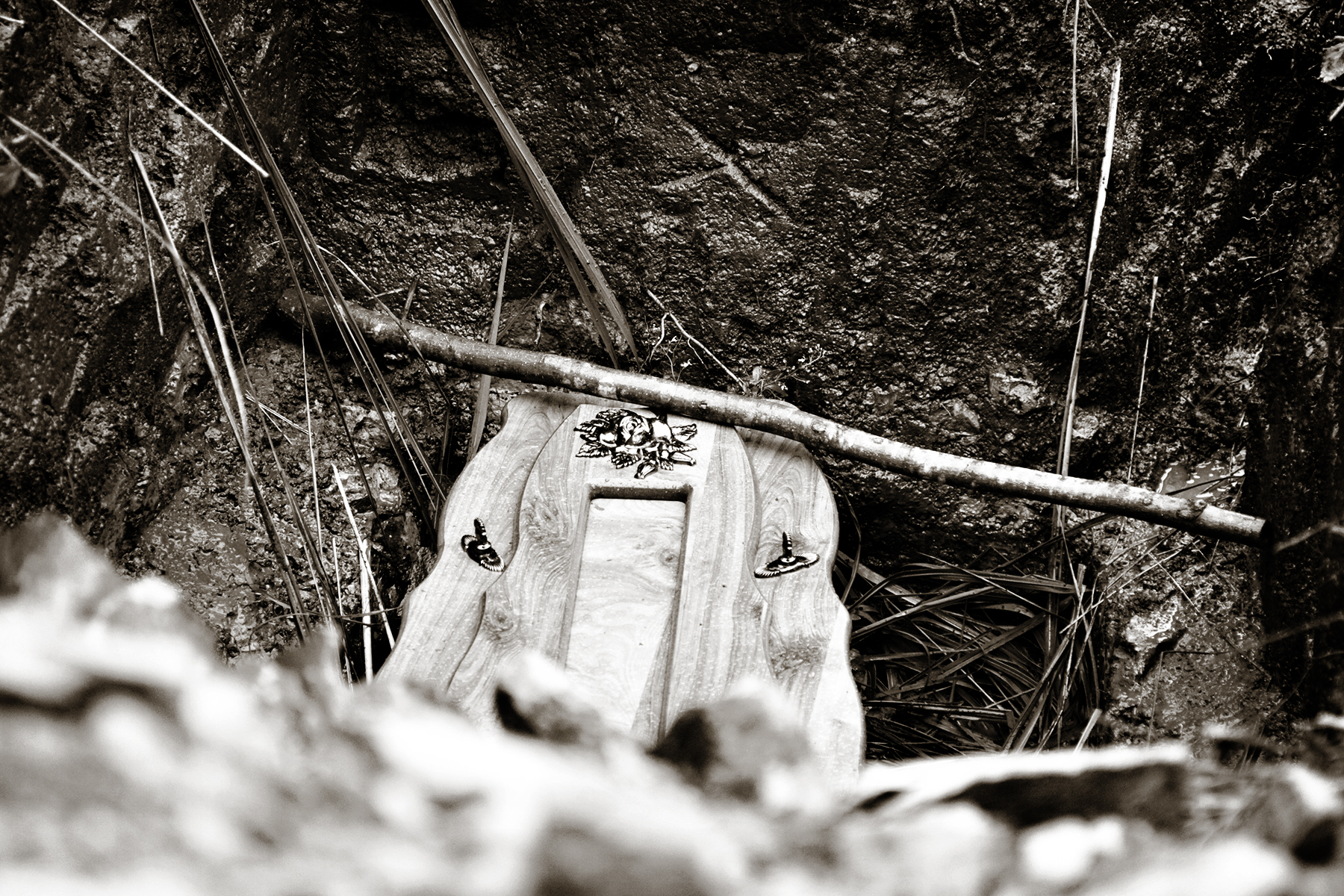There is a document on my computer that has been there for many years. It contains ten of Edna St. Vincent Millay’s poems that I typed up while reading a book of her collected poetry when I was perhaps eighteen. They are the poems that got to me, that stirred me up with their cadences full of heartbreak and splendor. I didn’t want to lose them, so I seized them and made them stay. And they are still with me to this day.
A few of these poems are unashamedly cheery, like “Recuerdo,”a jolly and personal anthem about the adventure of love. But, as is characteristic of Millay, most of them are not. Like so many 20th century writers, Millay frequently wrestles with the painful reality of mortality in a world that is no longer certain whether there are any eternal things. Millay lived and wrote in the literary period known as modernism, an era characterized by disillusionment with traditional religious and cultural institutions. Writers and thinkers from this time were grappling with the shock of two world wars that came in quick succession (Millay’s life spanned both of these near-apocalyptic conflicts) and many of them found they simply couldn’t reconcile the notion of a loving and orderly God with the horror and chaos of their experience. So when we read the major poets from the modern period, we find a great deal of confusion, bitterness, and angst, and a fair amount of nihilism.
For many dedicated and faithful Christian people, this kind of work seems to be of little personal value. After all, we do not see the world as fundamentally chaotic and without purpose. Like Michael O’Brien’s protagonist in the splendid and voluminous Island of the World, we believe in a love that made the world, “that is present in it and speaks tender words through it.” And sometimes, we have to work so hard to believe in that love. Sometimes believing in that love is like clinging to the side of a cliff by our fingernails, beneath us a chasm of utter darkness. For many of us, it isn’t easy to keep a tight grip on confident hope here in this hurricane of unanticipated griefs where everything seemingly is spinning out of control at all times. We need courage. We need beauty. We need to feed the part of us that believes. So we don’t want to read poems of cosmic despair and irreparable defeat. It seems even irresponsible.
However, I’d like to make the case that these modernist poems of inconsolable grief and rage have a place in the Christian world and that they perhaps have something glorious to contribute to our understanding of God—something incandescent. Because Edna St. Vincent Millay’s dark and sad and utterly hopeless poems about death are like old friends to me now and although reading them is always jarring and solemnifying, it doesn’t propel me into doubt and fear but into compassion and resurrection hope.
I’d like to introduce you to “Spring,” a poem as bleak as an abandoned city, but very, very dear to me. And then I want to explain why this woeful and embittered lament gives me life.
SPRING
(by Edna St. Vincent Millay)
To what purpose, April, do you return again?
Beauty is not enough.
You can no longer quiet me with the redness
Of little leaves opening stickily.
I know what I know.
The sun is hot on my neck as I observe
The spikes of the crocus.
The smell of the earth is good.
It is apparent that there is no death.
But what does that signify?
Not only under ground are the brains of men
Eaten by maggots.
Life in itself
Is nothing,
An empty cup, a flight of uncarpeted stairs.
It is not enough that yearly, down this hill,
April
Comes like an idiot, babbling and strewing flowers.
So, you may ask, what about this poem is in any way hopeful or helpful or compatible with faith? And it is a fair question. I will tell you what happens in me when I read this poem. This poem makes me see and remember and taste and hear.
I see the speaker, the voice of the poem. I see her frail humanity and suffering. She, perhaps, has lost someone dear to her, to whom her soul was knitted like one line of stitches in a red scarf is knitted to the next. With the closing of the casket over that face, she has lost something that was connected to her at her core. It has been ripped out of her and she cannot ever find it again. Under the ground, she knows, is the slowly decomposing brain that was once connected to the soul that was connected to her. But all of those ties have been severed. It is cruel. It is insufferable. She is angry.
Secondly, I remember the realness of death. It is something we are always forgetting about. The fact that we are always forgetting about it is evidenced by the way we treat each other: the way we neglect the hard work of giving time and attention, the way we rail against people whose ideas about how to make the world better are not the same as our own. But if I suddenly found out I was terminally ill and slowly dying of an incurable disease, how kindly I would treat the people around me and how thoughtful and generous I would be towards everyone I meet! Yet at all times, we are all dying. We are all infected with the terminal illness of life and not one of us will be spared. I need to remember.
Thirdly, I taste the desperation of loss and its undoing power. All the beauty in the world, says the speaker, is no compensation for the ending of love. Yes, there are flowers and they are nice. Yes, there is the natural world in its cycles of rejuvenation and sprouting. But all of that, she says, is entirely worthless and even insulting when you are standing by the grave of the friend who is not there or anywhere, who is never to be found again. When you watch the first shovel of earth drop onto the casket, your heart within you will be filled with terror. You will turn instinctively to tell it to your dearest friend, to explain your disorientation and your loneliness. But they will not be there. And for this shudder of panicked isolation, there is no compensation. Millay is angry that anyone might think that anything could make this sorrow the least bit better. It is not enough, she says.
And I hear God. And I think God is not quarreling with Millay or angered by her hopeless poem. When I hear God responding to Millay, I hear him saying, “No, it’s not. It’s not enough. It’s an outrage.”
It’s not enough that here in the chaos and the misery of lives punctuated by deaths, little good things happen. Little flowers sometimes open. Little kind words are sometimes said. God knows that. After all, if there is a God, isn’t he a God of truth and of the real? Nothing that is real should be too much for the world’s maker to handle with complete understanding and goodness. So I think that every honest and skillful representation of the human experience should be of value to Christian people because it can tell us something about what is real. What is real in this poem is its unflinching stare at the dark bottom of the human experience of death. The poem tells us that humans are horrified and unmade by the thievery of death. This is a real thing to which God has a real response. And that response is, “I won’t stand for it.”
That response is “Lazarus, come out!” and a man in a whirl of white cloth walking right back through the yawning mouth of his own tomb. That response is a daring threat levelled right at the black and formless face of the spectre: “I am the Resurrection and the Life.” That response is the voice of the departed and deceased Jesus sending shockwaves through the galaxy by forming tender words to a woman grieving in a garden. A woman who felt, perhaps, not unlike the speaker in Edna St. Vincent Millay’s “Spring.” She had just buried the core of her life and the heart of her hope and her very dear friend. She was in a garden, crying. Was she saying, “April, what are you doing here with your stupid little crocuses and your dumb baby leaves? You are not enough!”?
And from behind her, the voice of Jesus saying, “of course not. Of course not.”
Bryana Joy is a writer, poet, and full-time artist who spends most of her time making and mailing the Letters From The Sea Tower, a handmade monthly subscription letter full of watercolor sketches, paintings, and snippets of glory from the Great Books. Bryana has lived in Turkey, Texas, and England, and currently resides in Eastern Pennsylvania with her husband. She enjoys hosting online poetry workshops, and her poetry has appeared or is forthcoming in an assortment of literary magazines, including The Christian Century, Beloit Poetry Journal, and Chestnut Review. Bryana takes delight in thunderstorms, loose-leaf tea, green countrysides, and the music of Johann Sebastian Bach.
Leave a Reply
A Field Guide to Cultivating ~ Essentials to Cultivating a Whole Life, Rooted in Christ, and Flourishing in Fellowship
Enjoy our gift to you as our Welcome to Cultivating! Discover the purpose of The Cultivating Project, and how you might find a "What, you too?" experience here with this fellowship of makers!


I like what you have to say here, Bryana. The gospel isn’t really “good news” until one has looked squarely at the bad news of sin and suffering and death. Only those who know the bitterness of loss can feel the full weight of words like “O Death, where is thy sting?” or “He will wipe away every tear from their eyes, and death shall be no more, neither shall there be mourning, nor crying, nor pain anymore, for the former things have passed away.” Jesus didn’t minimize our suffering. Before saying “Lazarus, come out,” he let himself weep even for the death that he was about to reverse.
Thanks for sharing this with us!
So glad you wrote this. I have a special hurting girl and her friend who need the cry that this yells out for those for whom there are no easy answers. You have equipped me to be with them. And, God forbid, equipped me for the grief I too must face someday.
Denise